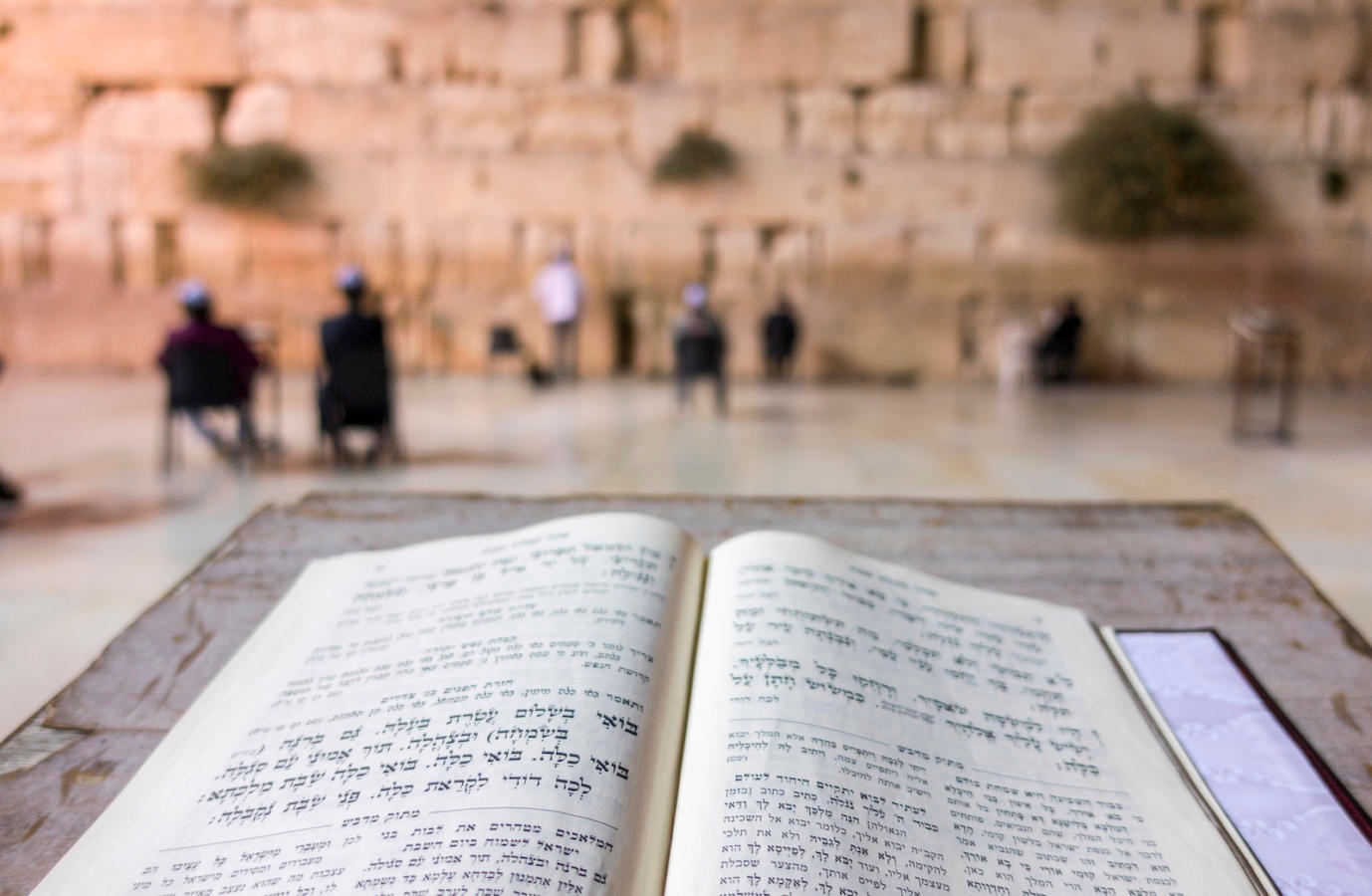How can I pray if I don’t believe what I’m saying?
Already in the 1950s, Rabbi Abraham Joshua Heschel pointed to a “crisis in prayer,” and things have not improved much since. Much of this crisis often boils down to an objection to the traditional words and phrases we encounter in the prayer book. How can one connect to words that seem so distant from what we believe or want to say?
These objections have animated most of the alterations to the prayer book over the past two centuries. In 1945, Rabbi Mordechai Kaplan called on prayer book editors to “eliminate from the traditional text statements of beliefs that are untenable.”
But this strategy fundamentally misses the point. Prayer is not a one-dimensional statement of belief. It is a literary creation — with all the power, nuance and complexity of literary creations. It is perhaps most useful to think of prayer as poetry.
With your help, My Jewish Learning can provide endless opportunities for learning, connection and discovery.
One of the ways in which poetry differs from prose is the multiple allusions within the text. A poem is not meant to be considered only on its own, but on the plane of the allusion as well. “[T]he meaning of the liturgy exists not so much in the liturgical text per se as in the interaction between the liturgical text and the biblical intertext,” Professor Reuven Kimelman has written. Kimelman argues that every prayer is in dialogue with a biblical text. By unlocking the biblical allusions in the liturgical text, meaning emerges.
Consider the final line of the first blessing of the Amidah. The fundamental theme of any blessing is often found in its final words. Here, those words are simply: “Shield of Abraham.”
Common objections to this line focus on the exclusive mention of Abraham. Where is Sarah? Where are the other biblical characters? But a fundamental interpretive question one could ask is: In what way is God a shield for Abraham?
God is a shield for Abraham in only one story. Genesis 15 relates the following:
Some time later, the word of the LORD came to Abram in a vision. He said, “Fear not, Abram, I am a shield to you; Your reward shall be very great.” But Abram said, “O Lord GOD, what can You give me, seeing that I shall die childless, and the one in charge of my household is Dammesek Eliezer!” Abram said further, “Since You have granted me no offspring, my steward will be my heir.”
The word of the LORD came to him in reply, “That one shall not be your heir; none but your very own issue shall be your heir.” He took him outside and said, “Look toward heaven and count the stars, if you are able to count them.” And He added, “So shall your offspring be.” And because he put his trust in the LORD, He reckoned it to his merit.
Then He said to him, “I am the LORD who brought you out from Ur of the Chaldeans to assign this land to you as a possession.” And he said, “O Lord GOD, how shall I know that I am to possess it?”
The foundation of the relationship between God and Abraham is based on two promises: Abraham will have many offspring and he will inherit the Land of Canaan. When God encountered Abraham for the first time in Genesis 12, these promises were made outright. But here in Genesis 15, Abraham is afraid that God will not make good on them.
Abraham questions God: Where is my child? God does not become angry, but simply reiterates the promise that children are on the way. When God renews the promise of the land, Abraham does not fundamentally believe. He asks: Lord, God, how will I know I will inherit the land? This verse is viewed in early Jewish tradition as the classic expression of doubt in the mouth of Abraham (Bablyonian Talmud Nedarim 32a)
We often think of Abraham as a paragon of faith, one who was willing to sacrifice his beloved son on the altar to fulfill God’s word. However, the conclusion of the Amidah reflects a very different Abraham— one who is plagued with doubts.
In many ways this is the crux of the blessing that is the foundation of the Amidah. Read with the biblical intertext, the prayer can be seen as saying: Don’t worry about your doubts. Even Abraham was filled with doubt, and he had a direct relationship with God. The project of prayer, this blessing could say, is that of holding your doubt and grappling with it, not letting that be a reason to drop out of relationship with God.
Whether or not this particular interpretation speaks to you, the larger point is that an interpretive approach to prayer yields a tremendous amount of nuance to an enterprise that, on the surface, may feel like a piling-on of praise after praise of God. The experience of prayer is greatly enhanced if the prayer book is treated, like so many other texts in Jewish heritage, as a starting point for interpretation rather than a surface statement of dogma.
Just as we engage in interpretation of Torah, we can hold the prayer book in the same light. Seen as a book of poetry, with myriad allusions waiting to be unlocked, the question of “How can I pray what I don’t believe?” becomes somewhat misplaced.
Perhaps the real question is: “How can I interpret what I am praying?”
Rabbi Elie Kaunfer is president and CEO of the Hadar Institute. This essay is adapted from the final chapter of “Empowered Judaism: What Independent Minyanim Can Teach Us about Building Vibrant Jewish Communities.” For more information in interpreting the siddur, click here.



